#too prosaic to idolise
Text
Anonymous asked: As a staunch royalist I would be interested to hear your views about Prince Harry and Meghan Markle deciding to quit the British royal family. Did they do the right thing or are they just being selfish and ‘woke’? Does this ‘Megxit’ the British royal family is in crisis and its future looks bleak by this act of betrayal to the Queen?
Short answer:
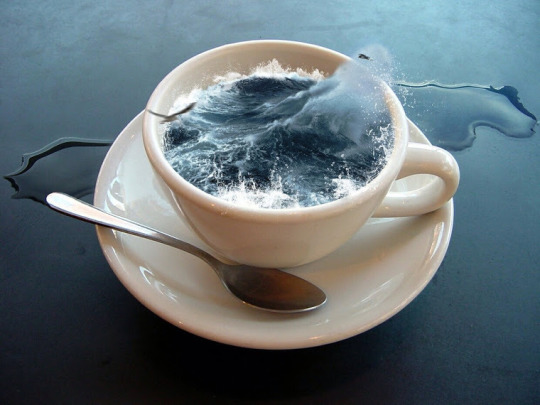
I have been avoiding answering this question precisely because I became tired of hearing about it around the family dinner table or with friends when I visited England recently or now with French friends here in Paris who can’t fathom what is going on. But too many have asked about this in my blog inbox.
I don’t mean to sound so dismissive but to me it’s just a passing storm in a tea cup rather than some cataclysmic crisis of the British monarchy. Everyone should stop take a deep breath.

After the joint press statement by Prince Harry and the Duchess of Sussex statement came out on 8 January 2020 it set in motion the usual hilarious pastiche of Cold War Kremlinology by the British press. So at any one time you had sensationalist and sanctimonious headlines such as the fury of the palace press knew no bounds. How dare they? The Queen humiliated. The palace insulted. And so on and so on.
Every newspaper editor knows there is a yawning gulf between the “public interest” and what interests the public. By any standards, Harry and Meghan have become huge celebrities. They were idolised, their charities blessed, their presence craved. Unfortunately such is human nature, the public invest something of themselves in their heroes. They see in their idols a reflection of their own fantasies and delights, hopes and fears. When they witness celebrities traumatised it can be unsettling, as the death of Princess Diana vividly showed. People cried in the street.
As Harry knew from his mother’s tragic experience, all this is par for the royal course. The British newspapers - or rather those peddling in royal tittle tattle such as the Sun, Mirror, and the Daily Mail - have a habit of erecting pedestals one minute and then the next minute they enjoy destroying the icon in the name of the public interest. Andrew’s former wife, Sarah Ferguson, was appallingly treated. So at times were Princess Anne, and Prince Edward’s wife, Sophie. Press attention should be water off the royal duck’s back. Prince Philip’s advice was reportedly: “Don’t read the bloody papers.”
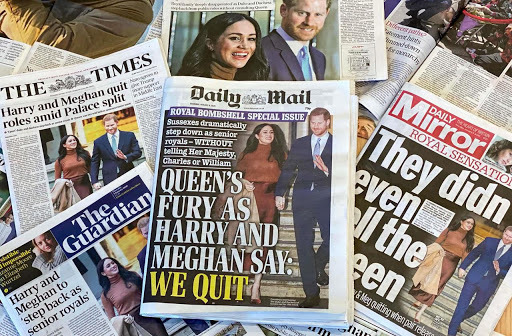
While Harry was brought up surrounded by the furies of the celebrity media, Meghan’s career was the opposite. In her profession as a known actor (albeit a middling TV actor at that), image is an artifice, daily crafted and laundered by publicists.
This does not work with British royalty, which comes with its own carefully minted image attached. Its rituals are those of mind-numbing deference. It has no accountability. The only mirror it has is the press. The tabloids are the price that must be paid for adulation. They honour no discretion and have no sense of fairness. The press is a memento mori, whispering into the victor’s ear that he – or she – is only mortal. And gosh do they take that role on with sanctimonious glee.
To be daily compared to the Duchess of Cambridge, from an utterly different social background, must have been intolerable for Meghan: the dress comparisons, the stuffiness of the court, its hyper-caution and obsession with precedence and procedure, added to the impossibility of contact with ordinary people. As a self-made millionaire already perhaps she wanted to be more than a mere civil servant in a tiara. Perhaps it proved too much but who really knows? But then I don’t know what else she expected when she decided to marry into the British royal family.
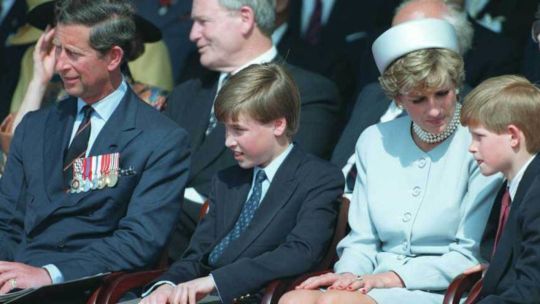
Similarly one can only speculate how much it was really Prince Harry who wanted to drop out riding on the royal carousel as he has been since birth. Regardless of who he married perhaps this was always the plan. His loathing of the British press and paparazzi is well known - he still blames them for his mother’s tragic death in Paris. It’s well known the paparazzi have tried to catch him out in manufactured scandals as he grew up. He has refreshingly come clean and has talked about how he still goes to therapy over his mother’s death. It’s no wonder he would ever subject a future wife and especially a child to the level of press intrusion that he had endured.
Prince Harry is nobody’s fool. I won’t say a bad word about him because - unlike previous and present royals with the exception of his grandfather, Prince Philip, who did active naval service during the Second World War and his uncle Prince Andrew, who as a naval officer flew Sea King helicopters during the Falklands War - he didn’t play the ceremonial toy soldier. After Eton he worked his arse off to get through Sandhurst and got commissioned with the Blues and Royals regiment. Upon the outbreak of war in Iraq, he was alleged to have said around 2006, “There's no way I'm going to put myself through Sandhurst and then sit on my arse back home while my boys are out fighting for their country.”
As it was the military chiefs got cold feet and pulled him out. But he did see active service with the British forces in Afghanistan with two tours. By all accounts he acquitted himself very well as a Forward Air Controller in Helmand Province and later as a co-pilot and gunner on Apache helicopters. He was widely respected and accepted by rank and file because he was down to earth and never asked for special treatment. He wasn’t a typical ‘Rupert’ - a squaddie’s nickname given to British army officers who typically came from privileged aristocratic backgrounds but were also ‘nice but dim witted’.
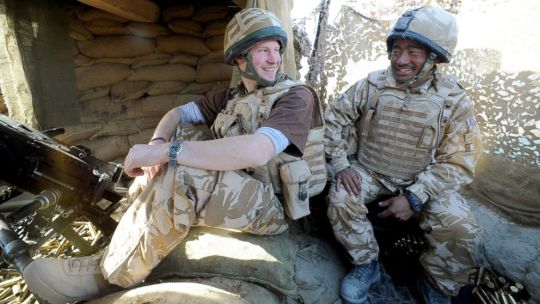
Overall I sympathise that the Sussexes’ predicament was clearly desperate, and it is perhaps to their credit that they have brought it to a head early and not let it drag on. I feel they are sincere in their reasons to ’step back’ from the royal family and frenzied media circus around it. The fact they want to pay their own way and pay back any outstanding sums back to the royal household is perhaps a sign of that sincerity.
Instead some sections of the British press rolled out the tired old trope of the parallels between the Duke of Sussex and his great-great uncle, the Duke of Windsor, are overwhelming. Once again, a dashing, sporting, ex-military prince leaves royal life for the love of an American divorcée. This is exactly the opposite of what Edward and Mrs Wallace Simpson did when they bit the hand that fed them. They took money to support their lavish lifestyle in exile from the Queen and all the while took every opportunity to snark the fledgling young Queen from their own alternative royal court in Paris. Harry no doubt loves his grandmother and his family and would try not sully the Windsor name.
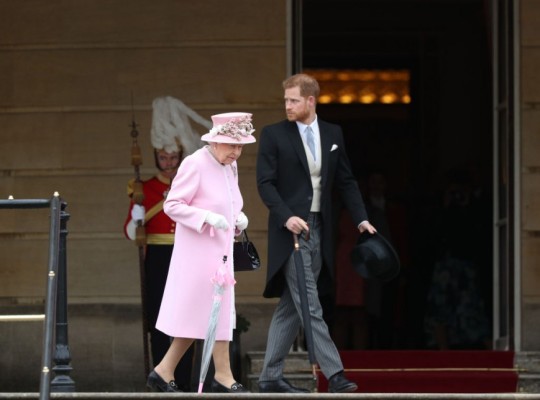
Where I would be critical a little is in their handling of it which appears naive at best and inept at worst. I suspect - since verified - that having a transatlantic split of publicists, and in addition didn’t understand the full import of how this would play out, would inevitably drop the ball. But I would extend a finger of blame to the palace courtiers who were involved in their own games of intrigue with a whispering campaign to selected journalists of the press. Indeed multiple newspapers, including the Daily Telegraph in the UK, reported that the queen was “disappointed” with the surprise announcement, and had asked the Sussexes to hold off on issuing a public statement. When The gossip mongering Sun newspaper published a front-page story that the couple was contemplating a move to Canada, the Sussexes pushed the button on their statement.
I do think the Sussexes and their advisors were fooling themselves into thinking that they could have their cake and eat it - in other words keep the royal titles but cut back on the public and ceremonial duties. The blunt truth is if you want to stay on the books, you do so by the leave of the firm and its boss i.e. The Queen. The contract is for life. If not, you resign. There is no half in and half out. This seems to have been the gist of the family only summit at Sandringham in January 2020, with media attention worthy of the Treaty of Versailles.
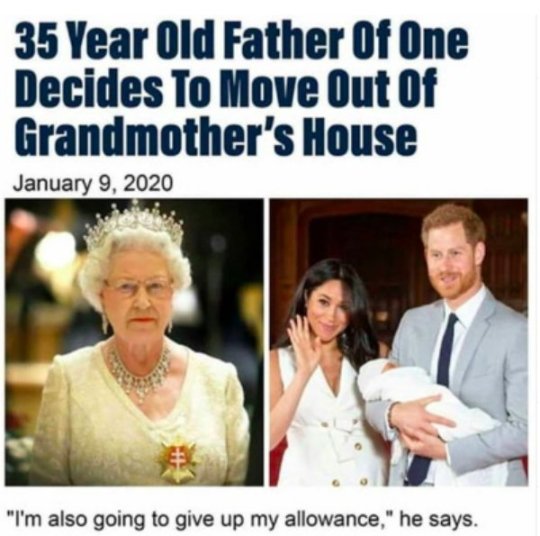
I am frankly surprised how worked up people are about this. Cut out the white noise and the picture is more prosaic.
The first point is that when all is said and done, none of this drama really matters. Politically, constitutionally, it is an irrelevance. Harry, at number six, is not seriously in line to the throne. The British monarchy has long shown itself immune to crisis; indeed I wonder sometimes if it welcomes crises as implying continued importance. The divorce and death of Princess Diana were awfully tragic, as was the very public shaming of Prince Andrew and his questionable friendship with billionaire paedophile Jeffrey Epstein. But how Harry leads his life is between himself, his wife and his father, Prince Charles. That is the point of heredity. It is immune to character, as it is to merit.
The second point is we should remember that other European royal families, of the same constitutional status as Britain, have been down sizing for many years now. These royal families balanced privacy and discretion whilst holding down ordinary professions. The King of the Netherlands, Willem-Alexander, is still an airline pilot. He occasionally flies KLM jets, safe in the knowledge that few people recognise him. In 2001 Prince Haakon, heir to the Norwegian throne, married a single mother with a drug-fuelled past. Despite some controversy, he survived incognito.
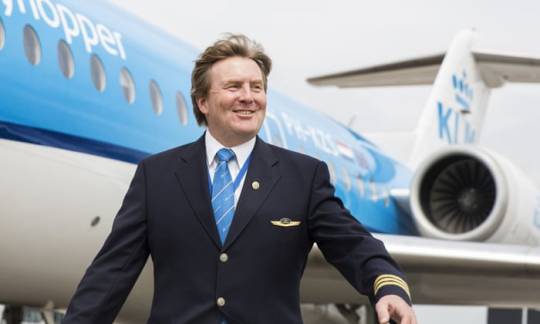
The King of Sweden, Carl XVI Gustaf, has reigned for 46 inconspicuous years as a nine-to-five job, his family merged into the Swedish bourgeoisie. The Crown Princess, Victoria, works intermittently for the UN. The King of Spain, Felipe VI, may have taken after his philandering father, Juan Carlos, but he became king without fuss on his father’s retirement in 2014. None of these “houses” has an extended state-subsidised royal family. None has grown unstable as a result.
There is no doubt that the exploitation of the British royal family celebrity by palace courtiers as PR handlers has worked. The royal family recognises that truth for itself when HRH King George VI famously quipped, “We are not a family, we are a firm”. The Queen is regularly cited as central to “UK plc” and to tourism. The British people remain overwhelmingly in favour of retaining monarchy as the focus of their patriotism, even during the wobble over Diana’s death. Republicanism is dead. The last ostentatious republican, the Fife MP Willie Hamilton, left parliament in 1987. If Scotland ever went independent it would almost certainly retain the Queen as head of state.
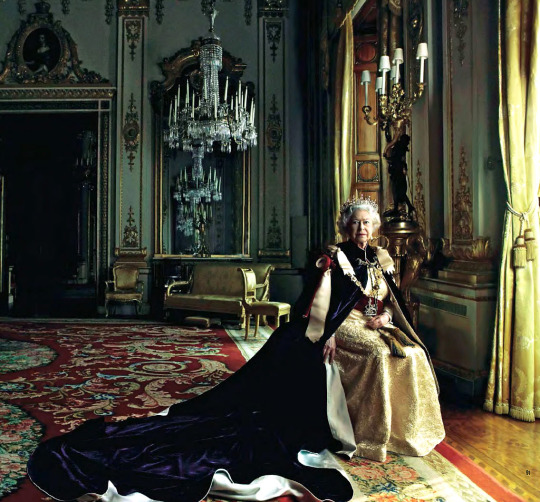
As for how royalty behaves, a constitutional monarchy should be beyond all controversy. As the great political and constitutional commentator (and founder of the Economist magazine) Walter Bagehot put it, “the monarch should be a dignified rather than efficient element of the constitution”. In other words, the monarchy as personified in its reigning king or queen can represent the whole nation in an emotionally satisfying way - everything else is but pure embellishment.
The Queen must be a glorious anthropomorphism of the nation as a whole. If she has opinions, she keeps them to herself - much to her credit. The contrast is clear with countries where state headship is combined with an elected executive presidency. The state risks being tainted by partisanship: witness the embarrassment many Americans feel at having their national loyalty identified with any president based on divided partisan feelings e.g. from FDR to Obama and Nixon to Trump.
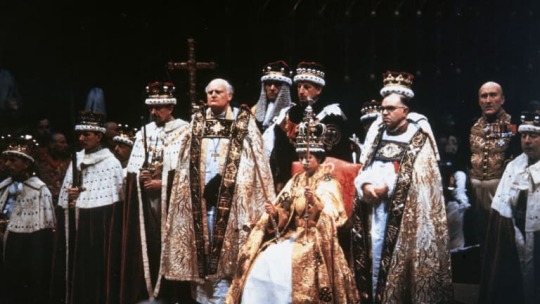
A rare occasion when the monarch might overstep the mark was conjectured by Mike Bartlett in his ingenious play, King Charles III, in 2014. It was based on the present Prince of Wales as king, refusing formally to sign a bill censoring the press (good on him). In the resulting crisis, William and Kate engineer Charles’s abdication, while the tearaway Harry takes up with a republican girlfriend. It was not wholly implausible. When Belgium faced a similar crisis over King Baudouin’s refusal to sign an abortion bill in 1990, he was allowed to abdicate for a day.
How the monarchy conducts itself is not wholly irrelevant. It is part of the collective context in which the nation’s politics are enacted. It represents tradition and upholds precedent. It sets boundaries and dictates a courtesy in the conduct of public affairs - however often that courtesy is infringed. What outsiders forget (especially our American friends) is that the British political system is gloriously resilient, as the past three years of Brexit hell have shown. It can tolerate the odd eccentricity, such as the blatant purchase of parliamentary seats in the House of Lords. But the question is how far such eccentricity can extend.
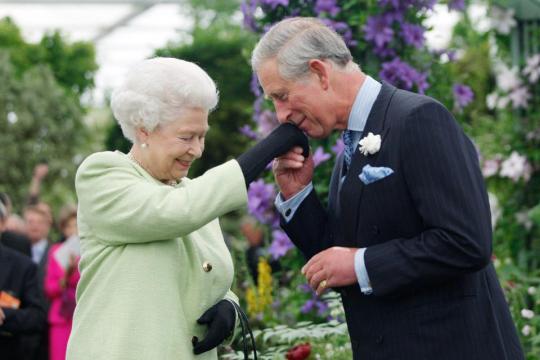
The present heir to the throne, Prince Charles, is deft at stepping mildly out of line. His views on architecture, health and the environment are not overtly partisan. But it does not matter as he is no more “powerful” than a newspaper or television commentator. His influence is that of celebrity. I would rather have the heir to throne engage intelligently in public debate than arrogantly indulge in the sordid sexual antics of his younger brother, Andrew.
For all his perceived faults, Prince Charles knows his limits. To expect such controlled nuances in the constitutional mystique of royalty to apply to an ever larger family has always been an accident waiting to happen. More prescient is the fact that the current system will impose the same disciplines and direct the same public exposure on an ever widening array of royal offspring as the years go by. I feel genuine sympathy for the royal children. Most British minors have their faces blanked out on camera, but not royal ones. They are sentenced to be recognised for life.
As a nation then we are extremely fortunate that Prince Harry is no more militant than in defence of the planet, wild animals and injured military veterans - all worthy causes if we are honest to admit it. Full disclosure: as an ex-veteran, I do give charitable donations to Invictus Games Foundation, the multi-sports event put on for wounded, injured or sick armed services personnel and their associated veterans. Prince Harry was instrumental in founding the Invictus Games in 2014 on his own initiative so that we never forget the courage and sacrifice of our military veterans.

What is already clear is that the Sussexes intend forthwith to redraw the lines of engagement with the press. They are opting out of the Royal Rota, the arrangement whereby, for decades, the royals have given access to a pool reporter from the national papers; instead, they will invite coverage from personally selected media outlets and will use their own social-media accounts, especially Instagram, to communicate directly with the public. Having railed against the media’s commodification of his wife, Prince Harry now seems prepared to take its commodification into his own hands: it was reported in January 2020 that he and the Duchess have lately submitted a trademark application for hundreds of items, from clothing to printed items, that may be issued with the couple’s personal brand, Sussex Royal.
This step is unfortunate and unedifying. To my mind, Sussex is a title, not a brand name. It is no more Harry and Meghan’s to exploit than Buckingham Palace is the Queen’s to sell off. Even if they distance themselves from the monarchy by being financially independent (as well as disowning their titles) by pursuing other commercial opportunities it only takes one scandal - e.g. a goods with their brand made from sweat shop labour or some other unforeseen PR disaster - to reflect badly on the Queen and the British monarchy solely because of Harry’s proximity to the throne. Harry may not be a Prince but he is a Windsor.
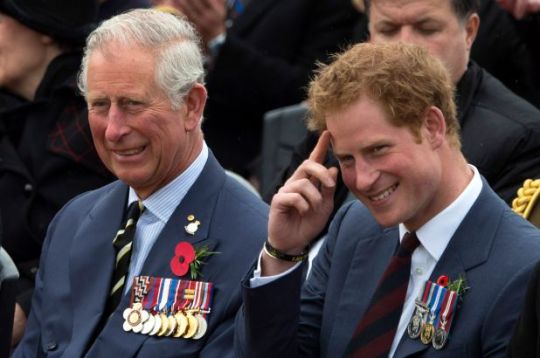
We are back to Bagehot again. For it was he who argued that the constitution was divided into two branches. The monarchy represents the “dignified” branch. Its job is to symbolise the state through pomp and ceremony. The government -Parliament, the cabinet and the civil service - represents the “efficient” branch. Its job is to run the country by passing laws and providing public services. The dignified branch governs through poetry, and the efficient branch through prose. The monarchy certainly doesn’t govern through commercial exploitation of its brand as an end in itself.
Today, the dignified branch is trying to adapt to an age of populism and until recently it’s been doing a much better job than the efficient branch. But the monarchy must never lower itself to the lowest common denominator to satisfy the base instincts of populism. As Bagehot aptly said, “An element of exaggeration clings to the popular judgment: great vices are made greater, great virtues greater also; interesting incidents are made more interesting, softer legends more soft.”
A family spat of no public importance is obsessing the nation and the world. Everyone should sit down and have a nice relaxing cup of tea.
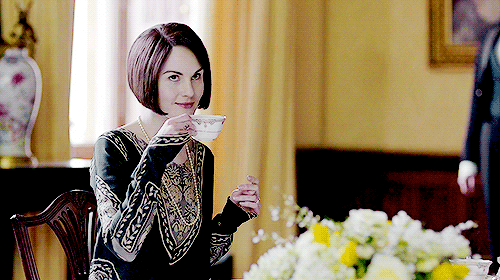
#question#megxit#monarchy#britain#prince harry#meghan markle#duke and duchess of sussex#royalty#constitution#journalism
217 notes
·
View notes
Text
artist corner
Bhushita Vasistha: WORDS THAT DANCE IN DARKNESS & LIGHT
Photo file: Beni Waiba
Bhushita Vasistha is an aficionado of Nepali Chhanda Kavita, a special genre of lyrical and metric Nepali poetry. She writes and recites it, “I have an emotional attachment with Chhanda Kavita”. Her melodious voice gained recognition when she recited the Chhanda Kavita of legendary Nepali poets at the Paleti musical series in April last year.
Bhushita is a student of English Literature and works with a daily newspaper as a writer. She has currently taken the lead of the editorial segment of Nepalaya curating some interesting books this year. She says, “We are looking for new styles, genres, tones and issues. The political consciousness the country has acquired in these few years is massive, but we are still in the dearth of books that can astutely reflect this evolution. My focus will be on curating and encouraging these kinds of books.” Her talents are not limited to writing, she is admired as an actor too. The character of Anindra played by her in Kumar Nagarkoti’s play Bathtub had her share the stage with veteran artistes Neer Shah and Brajesh Khanal.
In conversation with WOW’s Pabita Dahal, she talks about Chhanda Kavita and what it means to her. Excerpts:
What does poetry mean to you?
Poetry, to me, is that sacred window through which we can peer into the illogical, irrational, and molten state of the beauty of the world, which often gets overlooked in the prosaic precision of everyday life.
How did you get into Chhanda poetry?
I grew up in a household where these prosodies were the very part and parcel
of life. I would wake up to the sonorous sound of mantras being chanted. Sometimes to chastisement for being asleep late into the morning too was rendered in lyrical poetry. But of course, I grew up to study Journalism and English Literature. Nepali Chhanda poetry was gradually lost to the oblivion. And about two years ago, I hit a rather low point in my life. Rather desperately, I tried to pick up the scattered pieces of childhood memories to reconstruct my happy place again. In this process, these sounds slowly ebbed back to me. Chhanda poetry is my happy place, my den of solace.
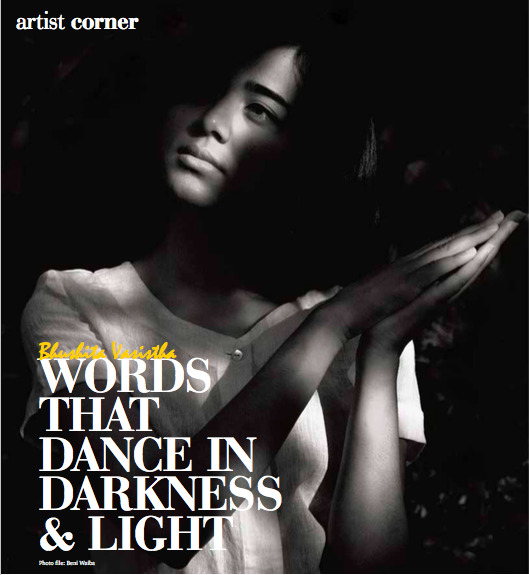
How do you define it and how is it different from the free verse?
They say the prose is the triumph of idea over style and poetry is that of style over the idea. There certainly is a difference between free verse and Chhanda poem, in terms of their composition, grammatical structure and poetic devices like refrain or rhythm, etc. However, any good poetry, be it Andrew Marvel’s To His Coy Mistress or Devkota’s Ek Sundari Beshyaprati, they liquidate that rational rigidity of mind and make you more receptive to those feelings or emotions that preceded language, those that were more visceral and real.
How do you relate to Chhanda poetry as an individual?
I am an aesthete, my religion is that of beauty. While I find it particularly distasteful and dehumanising to idolise a person as a saviour, I am convinced of a higher state of order - call it God, or nature or any other name
if you may - because of the immense beauty that oozes out of this world.
The mountains, the play of breeze on pine needles, the intoxicating perfume of night jasmine, the crimson flame of rhododendron forests in April bloom - I
live to experience these scattered moments of exaltation and to gradually imbibe them, their colour, their melody, their stillness. Chhanda poems! I would have been a lot poorer in my soul had there not been chhanda poems, they are my hymns to beauty.
You sang the Chhanda poems of legendary Nepali poets at Paleti. What was the experience like?
I think joy is contagious. If you do something out of joy, it ripples out and regardless of the act, everybody who experiences it, is embraced by joy. It was such a moment of joy for me to sing those poems and that joy gently fell into the hearts of the audience and the ripple just kept expanding. It was pure joy. I don’t even know what to say because the love that I received afterwards was a very special achievement. But, soon after, I was slightly stunned by the attention I received on social media. It was, as Faulkner said, too much of white noise. I felt an incessant hum all the time. There was no moment of unadulterated silence, or a slice of darkness, where I was free to unfurl as my whim dictated. So I just disabled my social media. It made me realise while I love sharing poems with people, I also like that darkness, that anonymity where nobody sees me, except myself. That darkness is essential.
You also played the character of Anindra in Kumar Nagarkoti’s play, Bathtub. Tell us about it.
Anindra was a passage of rite for me. I shed my old skin and entered into a new phase of life. It was a groundbreaking experience in more than just one way. For one, going bald and stripping off the prescribed norms of gendered identity was huge. And enacting murder every day for a month to redeem my compromised dignity and freedom was a tone-setter. I am stained by Anindra’s hunger for individuation forever. She was profound, melancholic, lyrical, childlike and surprisingly very brave. The fact that she lodged in my body for three months (during the rehearsals and the play) has left me a changed person. And every evening, Anindra murdered Mr. Rana, I murdered one of my shadows that kept me in psychological hostage. It was an experience.
What can be done to preserve the melody and culture of Chhanda poems?
If you really want to preserve something, you cannot do it out of the sense of civic duty. You need to be invested in it, you need to love it, relish it. I love Chhanda poems, I never wanted to preserve it, or rekindle people’s interest
in it. I only wanted to create that unsoiled space of happiness for myself through the poems. In the process, people are beginning to appreciate
it. Some people ask me if we should make an institutionalised effort to preserve Chhanda poems. Poetry is personal, just like prayers. If I really love poetry, I cannot shove poetry down people’s throat that is just what poetry is not.
At the best, I can become poetry myself, that is the only service you can do to poetry.
https://wowmagnepal.com/quick-links/artist-corner/
8 notes
·
View notes